
 Apologies are in order, lovely reader. I had totally planned to hit an overlooked 1994 performance this morning, but the time just slipped away this week. It may still happen, but -- in the meantime -- 'twas necessary to meet a prior commitment and submit a post for the amazing Goatdog & his 1927 Blogathon. So, for this Supporting Actress Sunday, StinkyLulu offers for your 1927 consideration...
Apologies are in order, lovely reader. I had totally planned to hit an overlooked 1994 performance this morning, but the time just slipped away this week. It may still happen, but -- in the meantime -- 'twas necessary to meet a prior commitment and submit a post for the amazing Goatdog & his 1927 Blogathon. So, for this Supporting Actress Sunday, StinkyLulu offers for your 1927 consideration...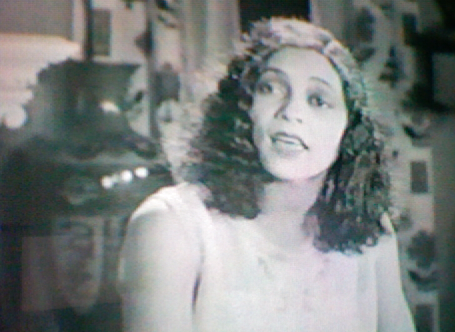

Pearl McCormack in The Scar of Shame (1927)
approximately 5 minutes and 4 seconds on-screen
6 scenes
roughly 7% of film's total running time
Since its rediscovery in the basement detritus of an abandoned Detroit movie house in 1969, The Scar of Shame has emerged as perhaps the emblematic example of "race movies" in the silent era. One of at least three films produced by the Colored Players of Philadelphia, The Scar of Shame's all-black cast improvised their scenes, following the guidelines of their Italian American writer and director. Even as the earlier work of independent black auteur Oscar Micheaux has deservedly garnered the most interest among critics, scholars and audience, The Scar of Shame remains one of the only surviving examples of a commercial black cast film in the 1920s that featured middle-class characters and targeted an African American audience. (note)
The haltingly plotted melodrama stirs "uplift" with social Darwinism and color heirarchies in the black community to mix a story that is at once impossibly complex and soporifically simple. (Silent features of the late '20s are so good at that.) Harry Henderson plays Alvin Hillyard, a well-educated concert pianist and "race man" who rescues Lucia Lynn Moses's Louise from the lascivious clutches of her stepfather. Alvin marries Louise, but keeps the marriage secret from his family. A whole bunch of drama unspools and Alvin ends up in jail for shooting some guy (it's a set up of course). Alvin escapes prison, flees to another city, and -- under an assumed name -- sets up shop as a music teacher, where he meets and falls in love with the daughter of a prominent black politician. (Of course, the wrinkle is that Louise, Alvin's wife has also migrated to this new city, become a night club vamp, and has taken up with that same politician.)
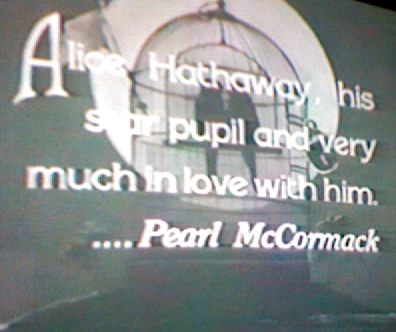
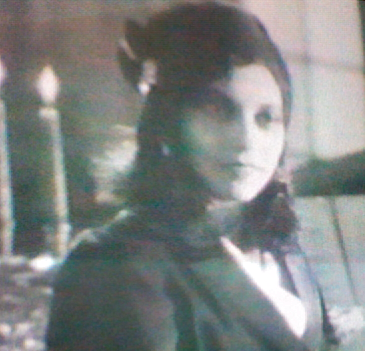
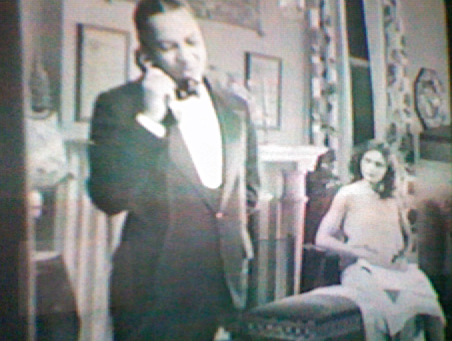
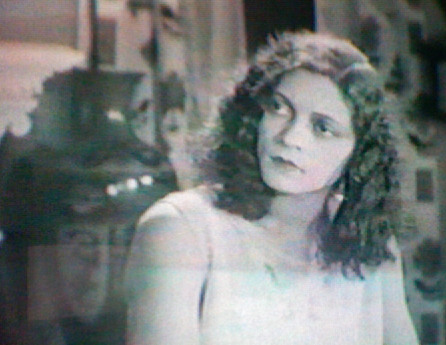
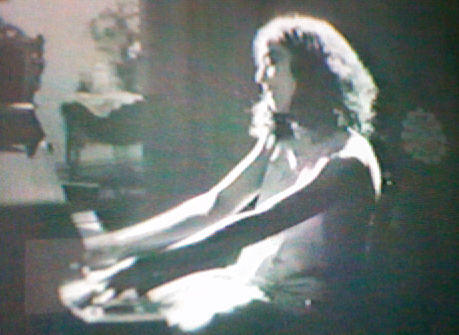 McCormack animates her scenes with a ready impetuousness, infusing her character's purity with an energetic womanliness that sparks the film to life in its final act. McCormack's Alice has little to do. She is, after all, mostly there as moral counterpoint to Moses's Louise. While Moses gets to gamble, drink, flirt and dance, Alice radiates goodness playing classical piano at home.
McCormack animates her scenes with a ready impetuousness, infusing her character's purity with an energetic womanliness that sparks the film to life in its final act. McCormack's Alice has little to do. She is, after all, mostly there as moral counterpoint to Moses's Louise. While Moses gets to gamble, drink, flirt and dance, Alice radiates goodness playing classical piano at home.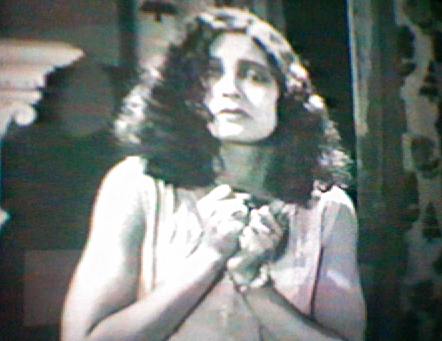
McCormack's Alice does get a good hysteria scene, though, after Alvin has revealed his past but before her father reveals Louise's climactic sacrifice. 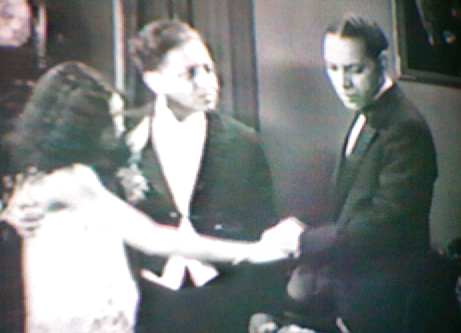 And even then, as the concluding action wheezes through its perfunctory woman-sacrificing plot machinations, McCormack's Alice gives the scenes their only verve. In The Scar of Shame, Pearl McCormack's animated performance emerges as one of the treats in this halting B-movie melodrama. (The other treats are in the excellent club scenes, where unnamed and mostly dark-skinned characters get all vice-y -- good stuff.)
And even then, as the concluding action wheezes through its perfunctory woman-sacrificing plot machinations, McCormack's Alice gives the scenes their only verve. In The Scar of Shame, Pearl McCormack's animated performance emerges as one of the treats in this halting B-movie melodrama. (The other treats are in the excellent club scenes, where unnamed and mostly dark-skinned characters get all vice-y -- good stuff.)
 And even then, as the concluding action wheezes through its perfunctory woman-sacrificing plot machinations, McCormack's Alice gives the scenes their only verve. In The Scar of Shame, Pearl McCormack's animated performance emerges as one of the treats in this halting B-movie melodrama. (The other treats are in the excellent club scenes, where unnamed and mostly dark-skinned characters get all vice-y -- good stuff.)
And even then, as the concluding action wheezes through its perfunctory woman-sacrificing plot machinations, McCormack's Alice gives the scenes their only verve. In The Scar of Shame, Pearl McCormack's animated performance emerges as one of the treats in this halting B-movie melodrama. (The other treats are in the excellent club scenes, where unnamed and mostly dark-skinned characters get all vice-y -- good stuff.)An editorial aside: If you take it upon yourself to watch The Scar of Shame (it's fairly accessible since its Library of Congress restoration/release in the early 1990s) StinkyLulu strongly recommends that you do so with the sound turned down. The piano score by silent movie music legend Philip Carli is shockingly enervating (banal and sleep-inducing, really). The film becomes much more engaging without Carli's track -- not sure why...
Be sure to spend time with the Goatdog's assemblage of interesting posts at the 1927 Blogathon Headquarters...

4 comments:
What does her skin color have to do with her beauty? You call her a light-skinned beauty? She's a beauty, no matter her skin color, beautiful women come in all tones, not just light-skinned blacks. What makes her beautiful is her features, not her color. I know this country likes to base beauty by what complexion someone is, but really, this is a new era. I hope you wasn't implying she is beautiful because she is a lighter shade black person and that darker blacks aren't beautiful? I take it kind of offensive how you want to describe blacks by their color. You call the black extras in the nightclub scene, dark-skinned, what does their color have to do with anything? Their humans. Their people who had a purpose in the movie, to play a part, not to be a color. I never hear or read anyone say that pale white person or that tan white person, so why are people so color conscious when it comes to blacks? Get over it!
Hello, hello.
Politics of skin-tone inform both the narrative structure and thematic content of many black-cast films -- often in challenging, complicated ways. As a person of color myself, I hear your concern, but I encourage you to view this film for yourself and consider whether you still feel my comments are misplaced.
I have viewed this film several times, it's one of my faves. Lucia Moses and Ethel Moses are cousins of mine. Lucia only appeared in one film, while Ethel appeared in many of Oscar Micheaux's films. I have viewed many race films as I've seen blacks of all hues in leading roles. One of Micheaux's most beautiful actress (besides my cousins) was Dorothy Van Engle, a brown-skinned lady, who he featured in many of his movies.
I feel As long as were obsessed with color, others will be to. Why whenever blacks are written about, color is such a huge issue? Why aren't their lives, who they were as people, their talents discussed? I think we owe that to them. All their lives they were judged by color and race, why not now give them what they always wanted...to be judged by their talents. I'm sure everyone knows about the color issues of the past, why can't we discuss more important things? Is it because subconsciously when it comes to blacks, race and color is the only thing of interest? Not their talents?
When I watch race films, I'm not looking for who's dark, or who's light. I want to see what it was like back then, I want to enjoy the beauty, the talents of blacks from dark to light. I like Scar of Shame because there were blacks of all hues in it. There was a balance.
For me Scar of Shame was a movie about what happens to people when there is no positive guidance nor education. I didn't see a color theme here, though some want to say well the lighter skinned ones had the leading roles, I guess that's the issue, I say so what? When there are darker skinned leads, no one says anything.
If you want to see a color theme movie, you should check out Veiled Aristocrats, God's Stepchildren by Oscar Micheaux.
I like the majority of race films because it gave blacks a chance to portray people and situations from all walks of life, not just "black life stories" or color issues. Most race films gave blacks a chance to play roles of doctors, nurses, etc. unlike Hollywood films, where blacks were stereotyped.
Post a Comment